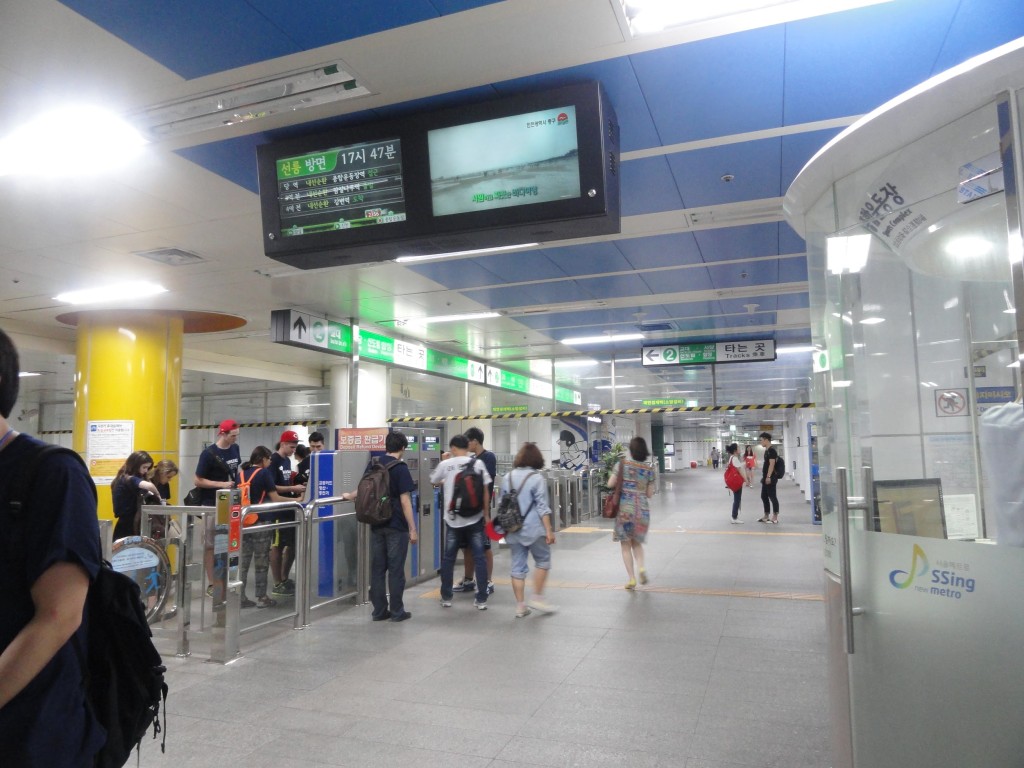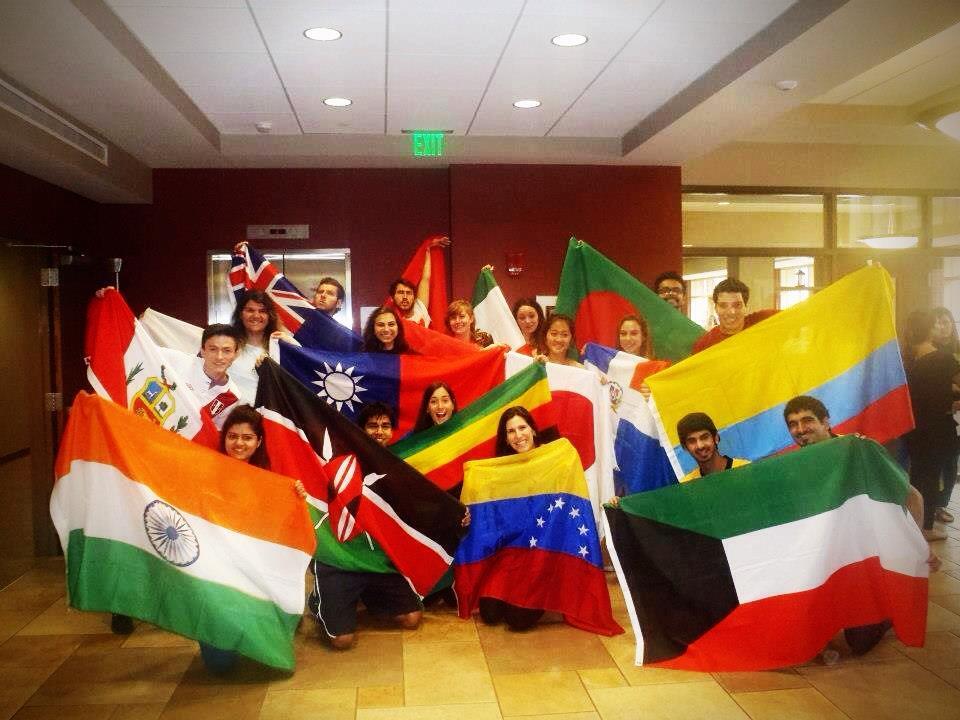 As new student travel programs and funding opportunities proliferate across the U.S., the dream of studying abroad is not so much a fantasy anymore for my generation, the Millennials. The push for us to go out and explore the world is tremendous, coming from professors, advisors, future employers, family, peers, and as demonstrated by Facebook and Twitter, the general public that doesn’t even know you. Search the social media account of the quintessential 20-year-old U.S. student, and I’ll willing to bet that within your first minute of investigation, you can effortlessly find an article on a dream list of travel destinations.
As new student travel programs and funding opportunities proliferate across the U.S., the dream of studying abroad is not so much a fantasy anymore for my generation, the Millennials. The push for us to go out and explore the world is tremendous, coming from professors, advisors, future employers, family, peers, and as demonstrated by Facebook and Twitter, the general public that doesn’t even know you. Search the social media account of the quintessential 20-year-old U.S. student, and I’ll willing to bet that within your first minute of investigation, you can effortlessly find an article on a dream list of travel destinations.
So of the students that are able to, how many are actually going abroad? Each year, nearly 300,000 U.S. students choose to study, serve, intern, teach, and travel outside of the U.S.
Good, right? Well of course, with each climb in numbers is a greater chance that students are experiencing other cultures’ lifestyles and gaining an education at the most fundamental level. High quality of cross-cultural interaction and introspective reflection is what the ideal program promotes (which you can learn more about and attain resources for at melibeeglobal-com.melibeeglobal.com). However, it’s important to know that a massive 97% of students is choosing programs that are 1 semester or less. Most only spend a portion of the summer abroad. And what they’re expected to obtain by the end of it….well, it can be rather intimidating: adaptability to local culture, foreign language proficiency, competence in working or studying in a non-Western system, independence in life management, or developing strong bonds with locals. This hardly seems like enough time to meet the heavy goals that students often set out for.
One reason that students go abroad to develop these skills, rather than remain at home, is because the local culture can be a catalyst for them to learn and improve. When a tough situation presents itself (e.g. trying to use your international health insurance in Tanzania, figuring out how to politely express “Where is the bathroom” to the Korean woman blankly staring at you, determining the trustworthiness of that Italian salesman who insists that his products are top-of-the-line), they’re pressured to make a decision. Having to constantly adapt is what is so conducive to students’ education and maturation while abroad.

Now we have to think: If these students only have this short time out of the country and if there is so much potential growth awaiting them, how can they find ways to truly maximize their experiences? What can they do independently to prepare themselves for life in another country, amidst a new culture, and what are resources they can utilize upon their return to continue personal and professional growth? Many resort to their study abroad offices, which is always a good place to begin. However, there are numerous opportunities to engage with diverse populations within the borders of the U.S., particularly around a college campus. They can be great assets to both traveling students, before or after their international experiences, and especially students who want a cross-cultural experience, but never get the chance to go abroad. Here are some ideas (with linked examples) for students on how to get started:
- Comb the academic departments and not just within your own field. Look for events, guest speakers, and conferences hosted by various departments. The Music program may hold cultural performances (e.g. plays, music concerts, dance recitals) or the Film program may screen international movies. The Language and Social Science departments will always be a hot spot for culture-themed events, but do not rule out the non-liberal departments, such as business, engineering, or biology. Beyond this, your faculty and staff themselves are a great resource. If you are interested in a particular culture or language and they have either an ethnic or academic background in it, do not feel shy to approach them during office hours. Most will be thrilled that you are so interested.
- Search for English education programs or immigrant/refugee service centers in your campus or city. There will likely be centers or courses, and they often have a need for volunteers. Working on your conversational skills in another language? This can also be a helpful resource to set up a language exchange. You can even take this a step further and find language centers for foreign languages. They will often attract native speakers of that language.
- Language exchange is not the only way to interact with the immigrant population. There are staff labor organizations within U.S. universities that have developed to integrate immigrants into the campus workforce. Immigrant coalitions, particularly for farm workers, are sprouting up across U.S. cities to alleviate the harsh conditions of first-generation migrants and their families, while lobbying for their improved rights. Such groups’ work often overlaps the undocumented workers movement- to raise awareness of their lack of rights and the injustices inflicted upon them. If such organizations exist in your area, you can contact them to learn more about their cause, find ways to interact with these communities, or become an ally or advocate.
- Students Organizations are always abound on the college campus, whether they be on an official registration list or an open club created by a group of friends. Want to learn more about Turkish culture. Try the Turkish Culture Association. Want to improve your Arabic? How about the Arabic Conversation Club? One of the most common difficulties is connecting with less active organizations. However, an effective approach could be finding their social media page or getting the contact information of a board member to stay updated on their events.

- Get out in the city! Not only are there student organizations on campus, but there are city and regional networks for various cultures, languages, and religions. Many of them host annual events or celebrations. You can directly contact ethnic churches, international food supply stores or restaurants, and even dancing or martial art studios, such as Latin and Tai Chi. Better yet, if your city has a Sister City, international guests or events are probably hosted regularly. An easy way to get started is to look for public events that you can easily attend or volunteer at with friends. If there is a similar organization on your campus, they will probably have connections to the city networks, so make sure you check with them as well.
- If you are seeking a more professional opportunity, an interesting twist could be finding an internship or job at a local branch of a multinational company or an international organization. This will give you the chance to enhance your language skills or technical knowledge you obtained while abroad, while contributing to the domestic branch. Many multicultural/international centers on the campus will likely offer employment opportunities as well. If you are seeking to work in a cross-cultural setting, look for centers on your campus that deal with English education, cross-cultural enrichment, or international travel.
- Above all, do not undervalue your own peers. International students are the most promising resource as they are typically looking to get involved and meet locals. If you think it’s difficult for you to meet people or find opportunities, imagine how difficult it must be for them. Start with the international student office and see if they have any advice on the best way to meet international students. There may be a “buddy” program to help new foreign students to adjust by pairing them with a domestic student. If there are exchange programs, advising staff will often appreciate participation by local students in escorting visiting students and introducing them to local life. If you have flexible living conditions and are looking to step up your commitment to cultural immersion, take the ultimate challenge of having an international roommate. The best way to experience a culture is to live it!
Ultimately, you may not find all of these opportunities in your area. The point is to keep an open mind, leave no resource untapped, and be enthusiastic to challenging yourself in the comfort of your own country. Happy exploring!
 About the Author: Paige Dabney is an interculturalist in training and currently resides in Tbilisi, Georgia. You can read more about her here.
About the Author: Paige Dabney is an interculturalist in training and currently resides in Tbilisi, Georgia. You can read more about her here.

